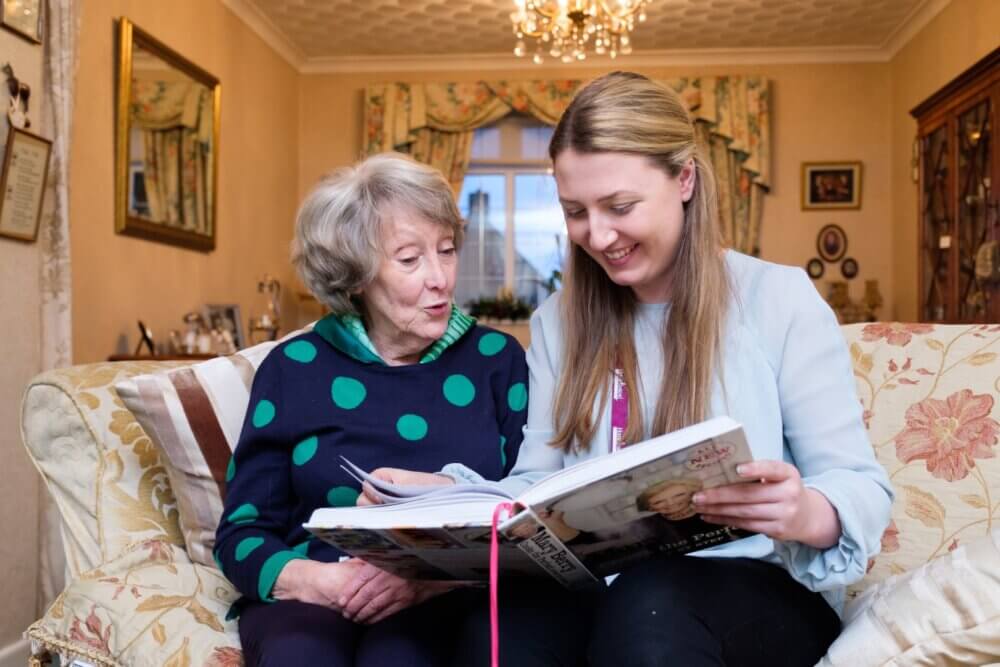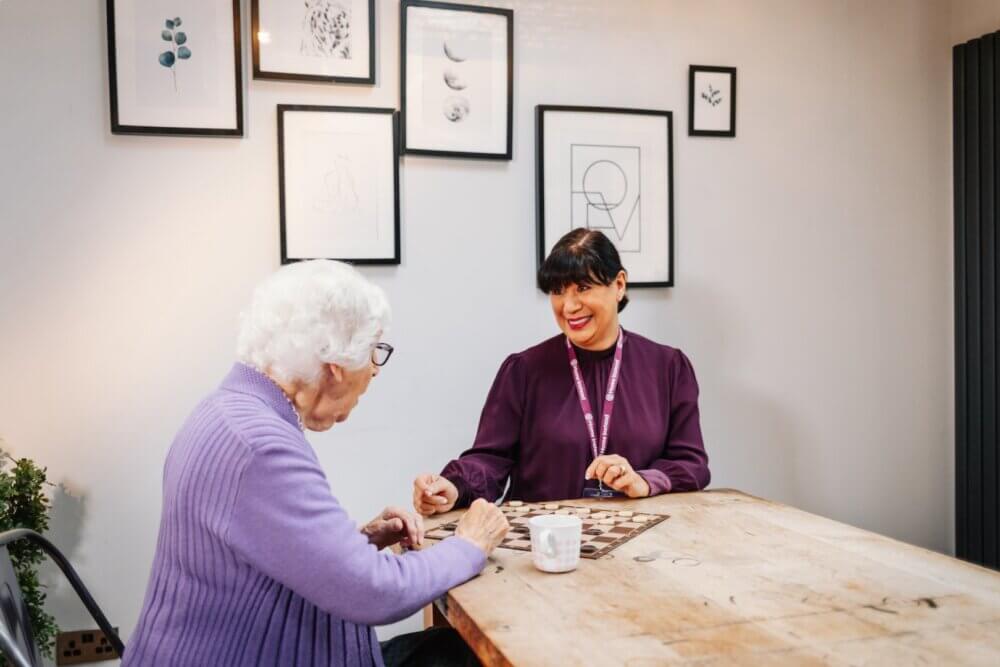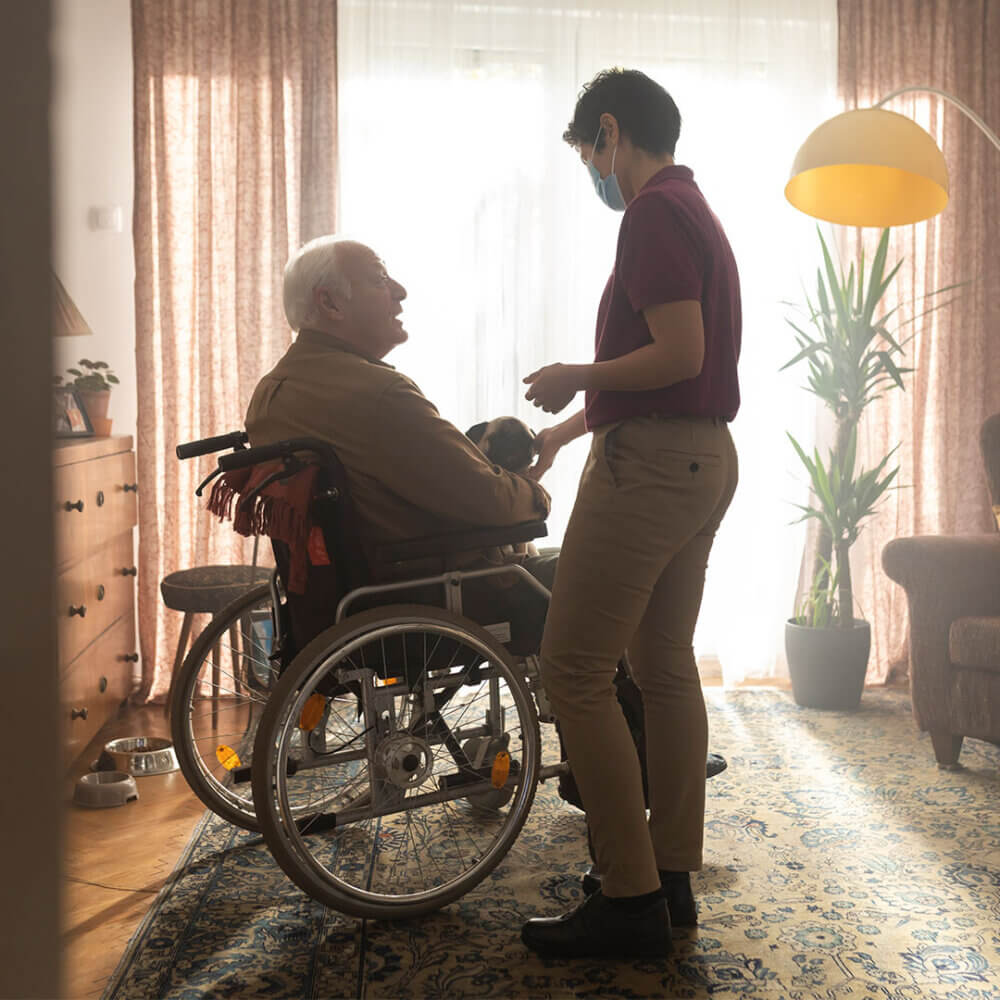What are the three golden rules of dementia?

Have You Ever Struggled to Communicate with a Loved One Who Has Dementia?
Caring for a family member with dementia brings many challenges, but communication can often be the most difficult. Words that once brought comfort may now cause frustration, and simple conversations can become overwhelming. The key to maintaining a calm, supportive environment is understanding how dementia affects memory and perception.
At Home Instead Yeovil, we believe in compassionate, person-centred care that prioritises emotional well-being. One approach that has transformed dementia communication is the SPECAL (Specialised Early Care for Alzheimer’s) method. At its heart are three essential principles—the Three Golden Rules of Dementia. By following these simple yet highly effective rules, you can help create a more reassuring and peaceful environment for your loved one.

The Three Golden Rules of Dementia Care
1. Avoid Asking Direct Questions
It’s natural to ask questions in conversation, but for someone with dementia, this can be distressing. Memory loss makes it difficult to recall facts, and being repeatedly asked for information they cannot retrieve can lead to frustration and anxiety.
Instead of asking, “Did you eat breakfast today?”, which may leave them feeling pressured to remember, try a gentler statement like, “Here’s a cup of tea to go with your breakfast.” This removes any expectation of recall and allows them to feel at ease.
By adjusting how we phrase conversations, we can help reduce confusion and support a more relaxed interaction.
2. Listen Without Correcting
For someone with dementia, their perception of reality may no longer align with the present. They may talk about past experiences as if they are happening now or misremember details. Instead of correcting them, the best approach is to listen and acknowledge their feelings.
For example, if your loved one says, “I need to get ready for school,” instead of responding with “You haven’t been to school in years,” a more supportive response would be, “That sounds like a busy day ahead.” This validates their emotions without causing distress.
It may feel unnatural at first, but by prioritising their emotional well-being over factual accuracy, you create a sense of security and comfort.
3. Never Contradict
Contradicting someone with dementia can lead to confusion, agitation, or distress. Even when their statements are factually incorrect, challenging their perception often causes more harm than good.
If your loved one insists, “Mum is coming to visit today,” even though their mother passed away long ago, responding with “Mum must be thinking of you” is far more comforting than “Mum passed away years ago.” This approach helps avoid unnecessary upset and allows for a more peaceful conversation.
By stepping into their reality rather than forcing them into ours, we can help them feel safe and understood.

Why These Rules Work
While dementia gradually affects factual memory, emotional memory often remains intact. This means that even if someone doesn’t remember the details of a conversation, they will remember how they felt during it.
By focusing on kindness, reassurance, and validation, we help create positive interactions that contribute to a better quality of life.

Understanding the Stages of Dementia and When Support is Needed
Dementia is a progressive condition, meaning that communication needs will change over time. Recognising these stages can help families adapt their approach and seek the right level of support.
Early-Stage Dementia:
- Occasional forgetfulness
- Struggling to find the right words
- Mild confusion in new environments
At this stage, small adjustments in communication can help maintain independence and dignity.
Middle-Stage Dementia:
- Increased memory loss, including difficulty recognising close family members
- Confusion about time and place
- Trouble managing daily tasks like cooking or personal hygiene
Many families begin considering professional home care support at this stage to ensure their loved one remains safe and comfortable.
Late-Stage Dementia:
- Severe memory loss
- Limited verbal communication
- Increased risk of falls and other health complications
At this point, full-time care is often needed to ensure safety and quality of life.

How to Create a Dementia-Friendly Environment
Beyond following the Three Golden Rules, caregivers can take additional steps to ensure their loved one feels secure and supported:
1. Maintain a Predictable Routine
A structured daily schedule helps reduce confusion and anxiety.
2. Use Reassuring Body Language
A gentle touch, a warm smile, and a calm tone can provide comfort even when words fail.
3. Engage in Meaningful Activities
Simple pastimes such as listening to familiar music, looking through old photo albums, or engaging in sensory activities can stimulate positive emotions and improve well-being.

When to Seek Professional Support
Caring for someone with dementia can be both rewarding and challenging. As the condition progresses, professional dementia care can provide essential support for both the individual and their family.
How Home Instead Yeovil Can Help
At Home Instead Yeovil, we offer tailored dementia care services that allow individuals to remain in the comfort of their own home while receiving the support they need. Our caregivers are trained in dementia-specific techniques, including the SPECAL approach, to provide:
✅ Personalised Care Plans – Support tailored to individual needs and preferences.
✅ Companionship and Emotional Reassurance – Helping to reduce isolation and anxiety.
✅ Assistance with Daily Activities – Including personal care, medication reminders, and meal preparation.
✅ Respite for Family Carers – Providing much-needed breaks to prevent caregiver burnout.
If you are looking for compassionate, expert-led dementia care in Yeovil, we are here to help.

Final Thoughts
Caring for a loved one with dementia requires patience, empathy, and a shift in how we communicate. The Three Golden Rules—avoiding direct questions, listening without correcting, and never contradicting—offer a simple yet powerful framework to improve daily interactions and enhance quality of life.
At Home Instead Yeovil, we understand the unique challenges that dementia presents. Whether you need occasional support or full-time care, our professional team is dedicated to providing compassionate, expert-led assistance to ensure your loved one feels safe, valued, and understood.
📞 For more information on dementia care services in Yeovil, call Home Instead Yeovil today.

Areas We Serve
Yeovil, Bridport, Sherborne, Crewkerne, Weston, Martock, Somerton, Langport, Eastfield, Castle Cary, Bruton, South Petherton, Beaminster, Milborne Port and surrounding areas.
DT6 3, TA18 7, TA12 6, BA22 9, TA14 6, DT6 6, TA11 7, TA11 6, BA21 3, DT9 6, DT6 5, TA10 0, BA22 8, BA7 7, DT9 5, DT6 4, DT2 0, BA21 4, TA17 8, DT8 3, BA22 7, TA10 9, TA13 5, BA10 0, BA9 8, TA15 6, DT9 3, BA20 2, BA21 5, BA20 1, TA16 5, DT9 4, TA18 8
Office Address: Somerset Yeovil Innovation Centre, Barracks Close,
Copse Road, Yeovil,
Somerset – BA22 8RN
Phone: 01935 577030